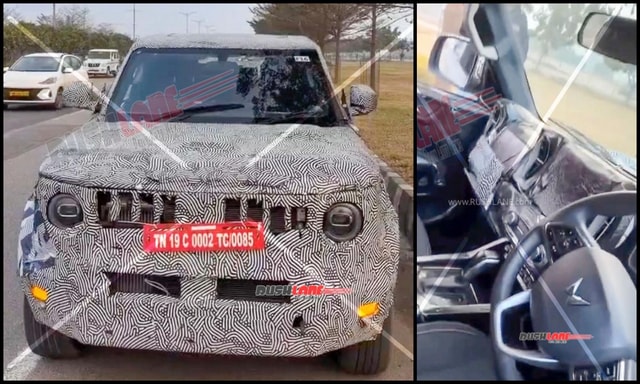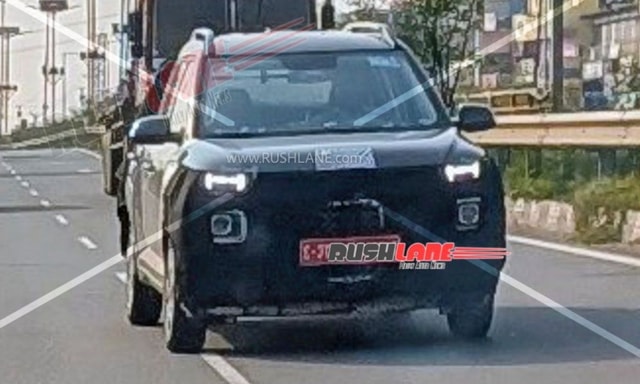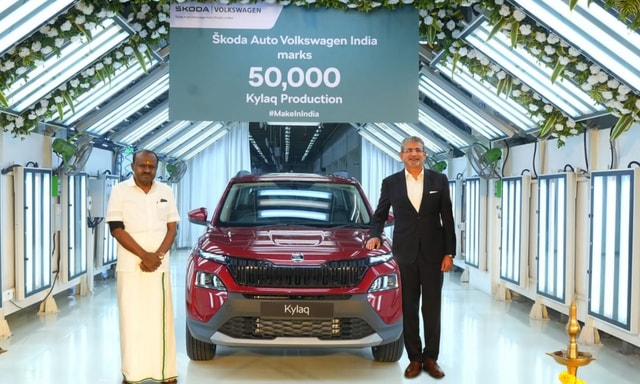Maruti Suzuki Sceptical About Indian Government's BS-VI Fuel Plans

Maruti Suzuki is not too enthusiastic about the latest BS-VI auto fuel emission norms and the company believes that this will not bring any perceptible change in air quality but may increase car prices by anywhere between Rs. 20,000 to Rs. 2 lakh. This comes after the Indian government decided to leapfrop fuel quality regulations from BS-IV to BS-VI by April 2020.
Maruti Suzuki Chairman RC Bhargava said it will be a challenge to upgrade technologies to meet BS VI norms in just 4 years, while also stating that cars contribute only 2 per cent to the overall pollution.
Citing a study by IIT Kanpur, Bhargava told PTI: "Cars contribute only 2 per cent to the overall pollution, while 98 per cent is from other sources. So, people should not be surprised when they don't see any perceptible change in air quality even after implementation of Bharat Stage-VI (BS-VI) norms."
He further said: "While we all should be concerned about air pollution, by concentrating 90 per cent of our energy on source that is responsible for only 2 per cent of pollution, are we addressing the real issue?"
Read More - Indian Oil Companies Need Huge Investments to Produce Euro VI Fuel: Nitin Gadkari
Automobile manufacturers will have to work with engine control unit (ECU) and fuel injection systems makers to upgrade to meet the new requirements of particulate matter and NOx emissions simultaneously, he said.
He further suggested, "This has to be done separately in a customised manner for each vehicle model and the 4-year timeline will be a challenge to meet."
When asked by how much car prices could go up, he said: "It is too early to say by how much. It will all be guess work, it can be anywhere between Rs. 20,000 to Rs. 1 lakh or even Rs. 2 lakh."
Expressing similar views, PriceWaterhouse Partner and auto expert Abdul Majeed said: "The car price increase due to shift from BS-IV to BS-VI will not be too much in case of petrol vehicles. The increase will be anyway between Rs. 10,000-20,000. For diesel cars, it will be in the range of Rs. 80,000-1,20,000 and for trucks it will be Rs. 1.5-2 lakh."
Most of the automakers will get impacted because everyone has significant number of diesel vehicles in their overall product portfolio and the impact will be much more for SUV manufactures whose line-ups mainly consist of diesel vehicles, he added.
In a bid to curb vehicular pollution, the government has decided to implement stricter emission norms of BS-VI from April 1, 2020 by skipping BS-V altogether.
At present, BS IV norms are followed in parts of India and by April 1, 2017, the whole of the country is scheduled to be covered under it.
Currently, BS-IV auto fuels are being supplied in the whole of north India which covers Jammu and Kashmir, Punjab, Haryana, Himachal Pradesh, Uttarakhand, Delhi, parts of Rajasthan, and western UP. The rest of the country runs on BS-III grade fuel.
From April 1, 2016, all of Goa, Kerala, Karnataka, Telangana, Odisha, and Union Territories of Daman and Diu, Dadra and Nagar Haveli, and Andaman and Nicobar will get BS-IV fuel.
Latest News
 Jaiveer Mehra | Jan 29, 2026Tesla Model S, Model X Production To End By Mid-2026Company CEO Elon Musk made the announcement during the company’s Q4 2025 earnings call.3 mins read
Jaiveer Mehra | Jan 29, 2026Tesla Model S, Model X Production To End By Mid-2026Company CEO Elon Musk made the announcement during the company’s Q4 2025 earnings call.3 mins read car&bike Team | Jan 29, 2026Mahindra Vision S SUV Interior Spied For The First TimeTest mules of the boxy SUV were initially spotted on public roads in mid 2025, with the concept debuting in August.1 min read
car&bike Team | Jan 29, 2026Mahindra Vision S SUV Interior Spied For The First TimeTest mules of the boxy SUV were initially spotted on public roads in mid 2025, with the concept debuting in August.1 min read car&bike Team | Jan 29, 2026Hyundai Exter Facelift Spied Testing Ahead Of India DebutUpdated Exter is expected to make its debut later in the year as Hyundai will look to better compete with the Punch.1 min read
car&bike Team | Jan 29, 2026Hyundai Exter Facelift Spied Testing Ahead Of India DebutUpdated Exter is expected to make its debut later in the year as Hyundai will look to better compete with the Punch.1 min read Janak Sorap | Jan 29, 20262023 World Superbike Championship-winning Ducati Panigale V4 R: Photo GalleryThis one is not tribute bike or a factory replica, but the very machine ridden by Álvaro Bautista during his record-breaking WorldSBK title in the 2023 season.1 min read
Janak Sorap | Jan 29, 20262023 World Superbike Championship-winning Ducati Panigale V4 R: Photo GalleryThis one is not tribute bike or a factory replica, but the very machine ridden by Álvaro Bautista during his record-breaking WorldSBK title in the 2023 season.1 min read car&bike Team | Jan 29, 2026Skoda Kylaq Crosses 50,000 Units Production MilestoneThe sub-compact SUV has played a major role in Skoda’s 107 per cent sales growth in 2025.2 mins read
car&bike Team | Jan 29, 2026Skoda Kylaq Crosses 50,000 Units Production MilestoneThe sub-compact SUV has played a major role in Skoda’s 107 per cent sales growth in 2025.2 mins read Janak Sorap | Jan 29, 2026KTM 390 Adventure R Launched in India at Rs. 3.78 LakhKTM has quietly expanded its adventure lineup in India with the launch of the more off-road-focused 390 Adventure R.1 min read
Janak Sorap | Jan 29, 2026KTM 390 Adventure R Launched in India at Rs. 3.78 LakhKTM has quietly expanded its adventure lineup in India with the launch of the more off-road-focused 390 Adventure R.1 min read
 Bilal Firfiray | Jan 21, 2026Tata Punch Facelift Review: New Turbo Engine; Same Old SoulWith the update, the Tata Punch facelift retains its character of being a healthy runabout, which is perfect for Indian roads. But have these changes made it any better?7 mins read
Bilal Firfiray | Jan 21, 2026Tata Punch Facelift Review: New Turbo Engine; Same Old SoulWith the update, the Tata Punch facelift retains its character of being a healthy runabout, which is perfect for Indian roads. But have these changes made it any better?7 mins read Amaan Ahmed | Jan 17, 2026Bajaj Chetak C25 First Ride Review: Basic, Likeable E-Scooter For First-Time RidersThe Chetak C25, in quite a few ways, is poles apart from the larger and more powerful 30 and 35 Series models, but in its mannerisms, it is very much a Chetak.8 mins read
Amaan Ahmed | Jan 17, 2026Bajaj Chetak C25 First Ride Review: Basic, Likeable E-Scooter For First-Time RidersThe Chetak C25, in quite a few ways, is poles apart from the larger and more powerful 30 and 35 Series models, but in its mannerisms, it is very much a Chetak.8 mins read Bilal Firfiray | Jan 9, 2026Toyota Urban Cruiser Hyryder: 10,000 km Long-Term ReviewAfter spending over three months and 10,000 km with the Toyota Urban Cruiser Hyryder Hybrid, we were impressed by its real-world mileage, seamless hybrid, practical comfort, and Toyota reliability. Is it the best C-SUV then?5 mins read
Bilal Firfiray | Jan 9, 2026Toyota Urban Cruiser Hyryder: 10,000 km Long-Term ReviewAfter spending over three months and 10,000 km with the Toyota Urban Cruiser Hyryder Hybrid, we were impressed by its real-world mileage, seamless hybrid, practical comfort, and Toyota reliability. Is it the best C-SUV then?5 mins read Seshan Vijayraghvan | Jan 8, 20262026 Mahindra XUV 7XO Review: Big On Tech, Bigger On ComfortThe new Mahindra XUV 7XO is flashier, feature packed, and comes with more advanced tech. But are the changes just incremental or actually substantial?1 min read
Seshan Vijayraghvan | Jan 8, 20262026 Mahindra XUV 7XO Review: Big On Tech, Bigger On ComfortThe new Mahindra XUV 7XO is flashier, feature packed, and comes with more advanced tech. But are the changes just incremental or actually substantial?1 min read Preetam Bora | Jan 10, 2026Simple One Gen 2 First Ride Review: 265 km Claimed Range!The Gen 2 model of Simple Energy’s first electric scooter gets a fair few updates, including new features, tech, more range and lighter weight. We spent a couple of hours with the Simple One Gen 2 to find out if it manages to impress.6 mins read
Preetam Bora | Jan 10, 2026Simple One Gen 2 First Ride Review: 265 km Claimed Range!The Gen 2 model of Simple Energy’s first electric scooter gets a fair few updates, including new features, tech, more range and lighter weight. We spent a couple of hours with the Simple One Gen 2 to find out if it manages to impress.6 mins read








































































































































